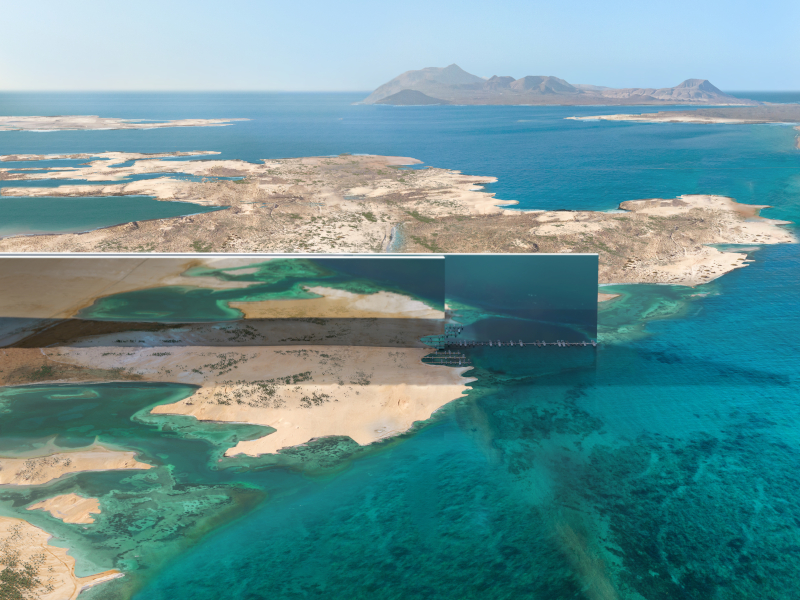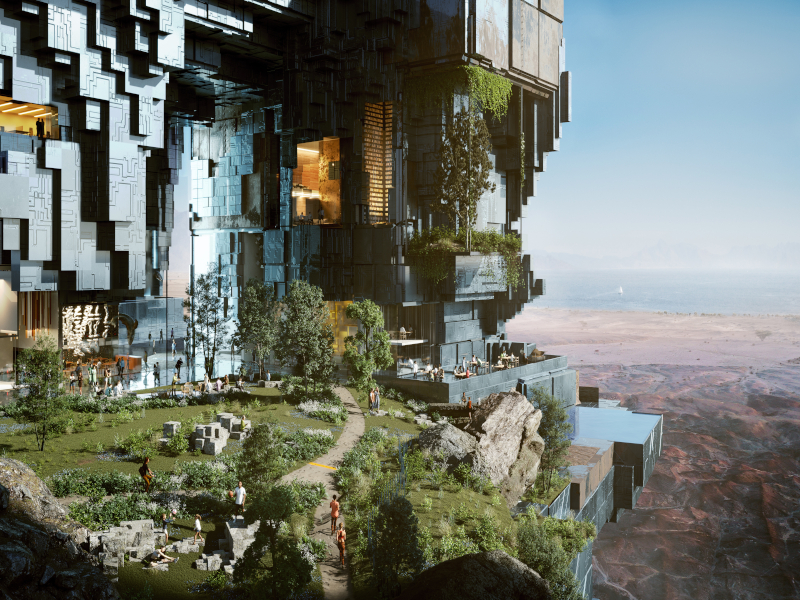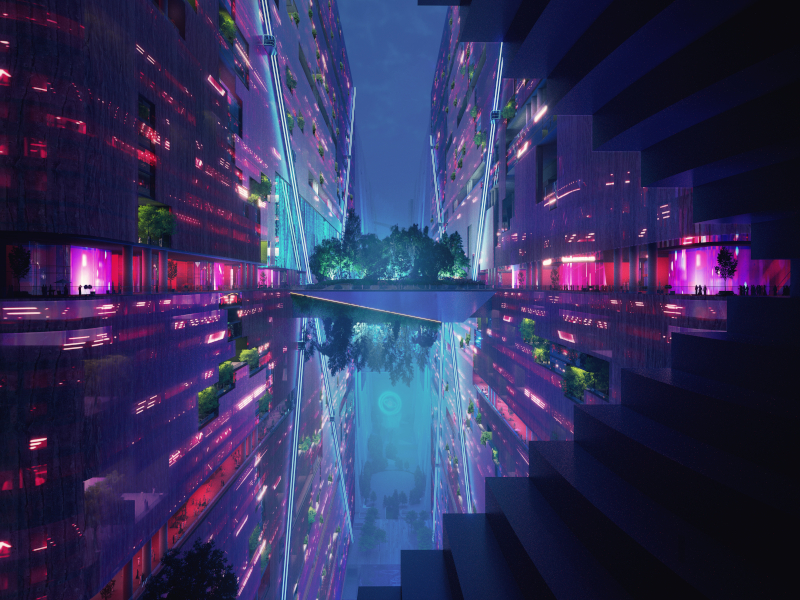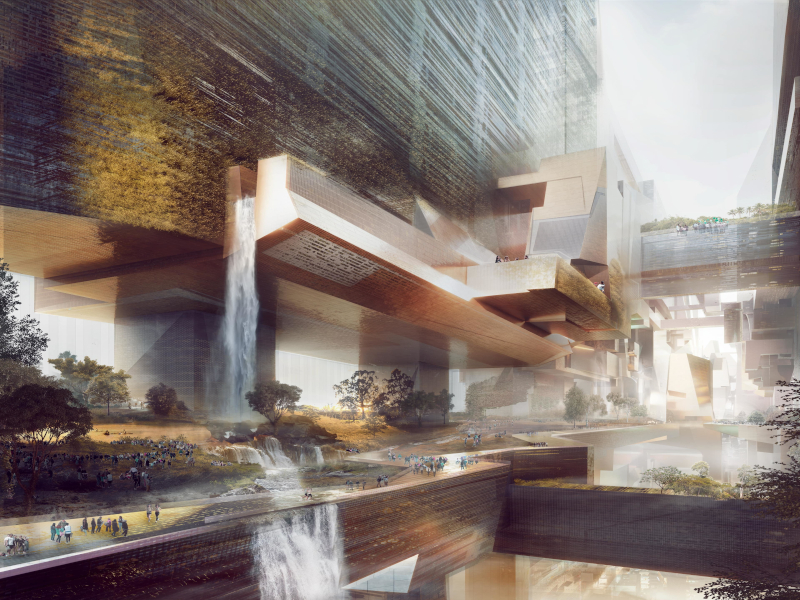The Line is a futuristic, human-centric megacity project, being developed by NEOM in Saudi Arabia, to provide sustainable urban living. It is part of the NEOM mega project, which is being developed on the Red Sea in northwest Saudi Arabia.
The Line is the centrepiece of the NEOM project, which will include multiple cities, resorts, and other major developments. In addition to The Line, other key projects of NEOM will include Sindalah, Trojena, and Oxagon. The NEOM project is part of the Saudi Arabian Government’s Vison 2030 programme, which is aimed at creating a more sustainable and diverse economy.
The plans for The Line project were announced in January 2021 while its detailed design was unveiled in July 2022. Construction of the project commenced in the first quarter (Q1) of 2021.
The project is expected to generate 380,000 jobs and add SAR180bn ($48bn) to the country’s gross domestic product (GDP) by 2030.
The Line location
The Line is being built in the Tabuk province of northwest Saudi Arabia. It will link the coast of the Red Sea with the mountains and upper valleys of Saudi Arabia’s northwest region.
The city will stretch from the Gulf of Aqaba in the west to NEOM international airport in the Upper Valley region, passing through different ecologies such as coastal, coastal desert, mountain, and upper valley.
The Line design details
Measuring 170km long and 200m wide, The Line will be situated 500m above sea level. Spread across 34km² , the city is expected to accommodate one million residents by 2030 and nine million residents by 2045.
The city will be divided into approximately 135 modules containing eight buildings each, with each module designed to accommodate 80,000 residents. The buildings will be supported by large-diameter bored piles.
The project is being developed based on the design principles of human improvement, wellness, and environmental sustainability. The futuristic city is designed to provide enhanced liveability, addressing the challenges faced by humans in the present-day world.
The design seeks to revolutionise urban development design by incorporating the concept of zero gravity urbanism, which layers the city in a vertical manner while enabling residents to move in upward, downward, and horizontal directions to access different areas of the city. The layered design will allow residents to reach facilities and amenities such as schools, offices, and public spaces within five minutes.
The reduced footprint of the city in terms of area will reduce the infrastructure footprint while also providing views of the surrounding natural landscape, mountains, and sky.
The project also features a canyon situated in the middle of the city. The canyon is designed to make the best use of the sun’s high arc during summer and low arc during winter. The top of the city will be left open, allowing the canyon to breathe.
The project design will also prevent heat build-up to maintain an ideal climate throughout the year.
Facade
The Line will feature an outer mirror facade that blends with the surrounding natural environment. It will also allow the penetration of natural light into the city.
The mirrored walls will also allow the integration of solar panels, which are planned to be fitted into the southern wall of the city to harness maximum solar energy.
Facilities at The Line
The megacity project will include spaces such as residential areas, schools, universities, stadiums, opera houses, convention centres, water parks, theatres, police stations, hospitals, and offices.
The first module of The Line is expected to have a university building.
The project will also create a large hidden marina that will handle various types of boats for leisure and recreation. The marina will also accommodate cruise ships.
The city will feature a high-speed rail transportation network named The Spine, which will enable a 20-minute end-to-end transit. The rail network will connect the Gulf of Aqaba and the NEOM international airport.
Environmental sustainability
The Line is completely powered by renewable energy produced from solar, wind, and green hydrogen to provide a clean, carbon-positive ecosystem.
The city will be free of cars and roads, ensuring zero emissions. Approximately 95% of the city’s land will be preserved for nature. The presence of open spaces across the city will enhance liveability and increase environmental protection. The natural ecosystem and open spaces will play an important role in purifying the air quality of the city.
NEOM also plans to maintain agricultural areas and use technologies such as vertical farming to support locally grown sustainable crop production in order to create a self-sufficient city. It also plans to use remineralised desalinated water.
NEOM is undertaking a programme to rewild and regreen the region to further improve sustainability and bring back native species of flora and fauna.
Smart technology
The Line will leverage artificial intelligence (AI)-powered technologies to provide autonomous services to the communities. The autonomous technologies will be seamlessly integrated into every aspect of the public and personal life of the residents.
Nearly 90% of the available data will be harnessed to provide advanced services to residents and businesses. AI is also being employed to create a digital twin.
Pre-engineered modular pieces are being used for the construction of the city.
Contractors involved
Parsons, a technology provider based in the US; Atkins, part of SNC-Lavalin; and a team of Jacobs and Jasara have been appointed as the delivery partners for the project in February 2023. The companies are responsible for providing project and construction management consultancy services for the design, procurement, construction, and commissioning of The Line project. The framework also requires the contractors to provide management services for the critical interfaces that the project shares with other NEOM projects in the area.
Keller, a geotechnical engineering company based in the UK, was engaged to provide geotechnical works on module 40 of The Line project in June 2022.
Saudi BAUER Foundation Contractors, part of BAUER Group, received a contract for the installation of approximately 70m-deep large-diameter bored piles for The Line, in August 2022.
The company received a contract for two more construction phases of the project in December 2022.
HanmiGlobal, a company based in South Korea, was engaged to provide project management office services for the project in 2021.
Consortiums led by FCC Construcción and Samsung C&T received drill and blast tunnelling contracts for The Line project in June 2022. The consortium led by FCC Construcción also includes China State Construction Engineering and Shibh Al-Jazira Contracting Company while the Samsung C&T-led consortium also comprises Hyundai Engineering and Construction and Saudi Archirodon.
The consortiums are responsible for tunnelling work over 28km to provide separate tunnels for passenger and freight rail transportation.
Systra, a global engineering and consultancy firm, was contracted for an integrated rail transport system in Neom in November 2021. The contractual scope includes conducting feasibility studies and providing technology and pre-design for an integrated railway network serving three of the cities in Neom, including The Line.
Trevi Arabian Soil Contractor, a subsidiary of Trevi Group, is performing the foundation works for The Line project.







